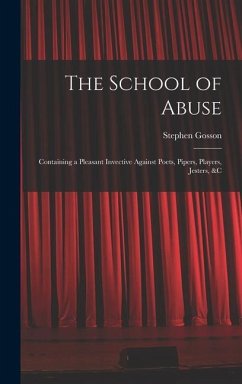
Reading the River in Shakespeare's Britain
Versandkostenfrei!
Versandfertig in über 4 Wochen
128,99 €
inkl. MwSt.

PAYBACK Punkte
64 °P sammeln!
[headline]Explores how perceptions of rivers shaped identity and culture in Shakespeare's Britain In Shakespeare's Britain rivers were not only a crucial form of travel and important natural resources which sustained communities and provided employment, but were also employed as sites of spectacle and performance. Myths and memories accrued around rivers which could be used to figure religious ideas of cleansing and the waters of life. Pageants were performed on them, legends developed around their names and led to plays and poems being written about personified river gods and goddesses, as we...
[headline]Explores how perceptions of rivers shaped identity and culture in Shakespeare's Britain In Shakespeare's Britain rivers were not only a crucial form of travel and important natural resources which sustained communities and provided employment, but were also employed as sites of spectacle and performance. Myths and memories accrued around rivers which could be used to figure religious ideas of cleansing and the waters of life. Pageants were performed on them, legends developed around their names and led to plays and poems being written about personified river gods and goddesses, as well as stories of historic battles which had been fought on their banks. Investigating the range of interactions between the early modern human populace and the rivers that sustained them, this collection explores the cultural and literary geography of rivers in the early modern period and the ways in which they shaped the lives and identities of those who lived near them. [bios]Bill Angus is a Senior Lecturer in English at Massey University, New Zealand. He has written extensively on early modern drama and material culture including Metadrama and the Informer in Shakespeare and Jonson (2016), Intelligence and Metadrama in the Early Modern Theatre (2018), Reading the Road, from Shakespeare's Crossways to Bunyan's Highways (co-edited with Lisa Hopkins, 2019) and A History of Crossroads in Early Modern Culture (2022). Lisa Hopkins is Professor Emerita of English at Sheffield Hallam University and co-editor of Shakespeare, the journal of the British Shakespeare Association, of Arden Studies in Early Modern Drama, and of Arden Early Modern Drama Guides. Her most recent publications include The Edge of Christendom on the Early Modern English Stage (2022) and A Companion to the Cavendishes (with Tom Rutter, ARC Humanities Press, 2020).












